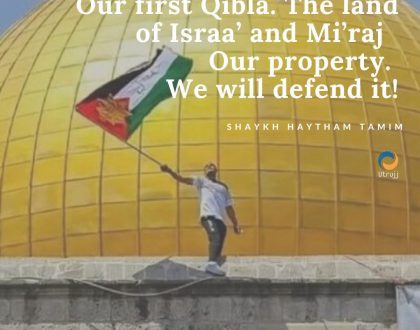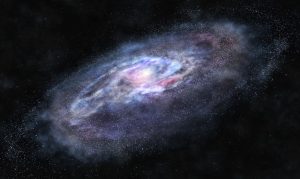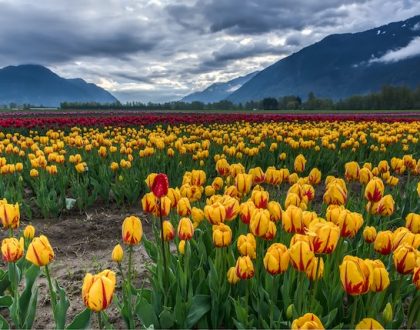(1:2-4) Getting to know The Real Lord, The King and The Owner

Lord of All the Worlds:
We can only find our place in the universe by getting to know who created us
All Praise unto Allah, Lord of the worlds
The All Merciful, the Very Merciful
The Master of the Day of Requital (1:2-4)
The Qur’an begins with Praise of Allah Almighty, and then goes on to describe Allah as ‘Rabb’. Rabb means Lord, but as anyone can be a lord, (including the Arabic for ‘man of the house’, which is ‘rabb al bayt’) the full phrase is Rabbil Alameen – Lord of the Worlds.
Which worlds are these? We cannot even begin to fathom them. The massive expanse of space contains so many galaxies within it, and then there is the unseen realm which includes the world of the jinn and the angels. Allah Almighty has mentioned in the Quran (51:47): ‘And the universe We created with power and skill, and verily We are expanding it.’ Our knowledge of it is but a drop in the ocean, and negligible about the other worlds which we cannot perceive.
Though a lord may be oppressive, unjust, power-hungry and ego-centric, Allah Almighty is Ar Rahman Ar Raheem, the Most Kind, the Most Merciful. He is exalted above all such traits. Indeed, He is the Lord of mercy, compassion and provision – all that we have and know.
It is Allah Almighty who is the nurturer and sustainer of all the worlds. Allah Almighty is not just our Lord, but the Lord of everyone and everything, including the giant beasts, the plant world and the tiniest of insects. This imbues us with a feeling of tolerance, sharing and opens our hearts to diversity. It reflects synchronization and harmony between all of Allah’s creatures, as is radiated by the simultaneous tawwaf of Allah Almighty’s ‘ibad’ (His worshippers) day and night, around the Kabah.
It is humbling to reflect where we would be on a map of the universe when it is difficult even to identify the Earth amidst its colossal galaxies. It is a reminder of how small and powerless we actually are, while we strut arrogantly through the Earth falsely believing we are its masters for the limited locus of control with which Allah Almighty has endowed us.
Allah Almighty has made much of His creation on this Earth subservient to mankind, giving us the responsibility of caring for it, sharing our blessings and disseminating His message. Yet, mankind, in his self-centred pursuits, forgets this obligation.
Rabbil alameen instills within us a feeling of tawadu’ (awe and reverence) towards Allah’s Majesty, an overwhelming, all-encompassing majesty we cannot comprehend. The whole of creation is simultaneously turning to Allah Almighty with its needs. He is managing all our needs at once; He is managing the entire universe tirelessly, without need for recuperation for He is As Samad, free of all need and want; He is providing for us all. It is a stark reminder of our faqr (poverty) before Him.
We need Allah Almighty desperately, but He does not need us. Yet despite this He tells us ‘My mercy prevails over My anger.’ (Bukhari) Allah Almighty is the source of all mercy.
King of the Day of Judgement
There are two possible pronunciations and meanings of ‘Maliki’ (ma-li-ki yaumideen). In accordance with the Warsh tradition (one of the ten authentic traditions of Quranic recitation, originating from the Prophet (peace be upon him), the meaning of ‘Maliki’ with a short vowel means ‘King’. Allah Almighty will ask on the Day of Judgement: ‘I am the King. Where are the kings of the earth?’ (Bukhari), referring to the tyrants. In Surah Al Anam, He says:
‘And [mention, O Muhammad], the Day We will gather them all together; then We will say to those who associated others with Allah, “Where are your ‘partners’ that you used to claim [with Him]?”’ ‘(6:22)
In Surah Ghafir, He says:
‘Then it will be said to them, “Where is that which you used to associate [with Him in worship] other than Allah ?” They will say, “They have departed from us; rather, we did not used to invoke previously anything.” Thus does Allah put astray the disbelievers.’ (40:73-74)
On the other hand, the pronunciation ‘maa-li-ki’, (with a longer vowel) from the Hafs tradition, is construed as ‘master’ or ‘owner’, identifying with the one who has full control and ownership of all matters, namely of the Day of Accountancy, here. On that Day, no one will be able to claim any ownership or control except Allah Almighty. True kingship will be for Him alone. Both interpretations are sound and consistent with each other.
Yawmideen refers to the Day of Judgement, the Day of ‘al hisaab’, accountancy and taking stock. On that Day, we will have no more choice and no more chances. Allah Almighty is the true master of this world and the next. On that Day, those who worshipped false masters and idols will expect them to rescue them but they will be powerless. Allah Almighty will ask: ‘Where are your partners? Call upon them!’ To this they will reply that they cannot find them.
This verse is also giving us direction: we are all heading for this tremendous event, the beginning of the akhirah, the Afterlife. So we ought to seize this opportunity to prepare for it. It is also calling upon our conviction to believe in the unseen world, that which existed before we emerged on this planet and which will ensue and continue to exist after we are returned to the soil. It will be a world dictated by our personal choices in this life. Deen, in Arabic, means conviction. It stems from the root word idana/daynuna, to convict. It thereby follows that we will be judged according to our conviction in faith on that Day.
It is also permissible to invoke Allah Almighty by this title, for example, certain istikharah supplications (prayer of guidance) address Allah Almighty as ‘Ya malika yawmideen’ or ‘Ya malik al mulk!’, the Owner of the kingdom. By this address, we are entreating Allah Almighty through His omnipotence over all matters. Surah Fatihah is the Surah of Praise, an antidote to depression, teaching us to be positive and grateful, to see goodness and be thankful.
Our journey through this life is short but we need to navigate our course with utmost care. The Fatihah is our pocket-sized map, helping us to navigate from this dunya to the akhirah. Having our Rabil Alameen watching over us leaves us with no worries about any of our affairs, or our rizq, because He is our Lord and looking after us.
Delivered by Shaykh Haytham Tamim in his Tafseer Class. Transcribed by Saania Bhatti.
- The truth is more powerful than lies
- Does a bride’s wali have to be Muslim?
- Is is permissible to lead a salah split over different rooms?
- Global IT outage. When systems go down…
- The concept of worship. What are ibadah and ihsan – and how do they lead to self development?
Recommended Posts

What is the best source of income?
September 01, 2023

Lessons in victory from Surat Al Ahzab
May 12, 2021



